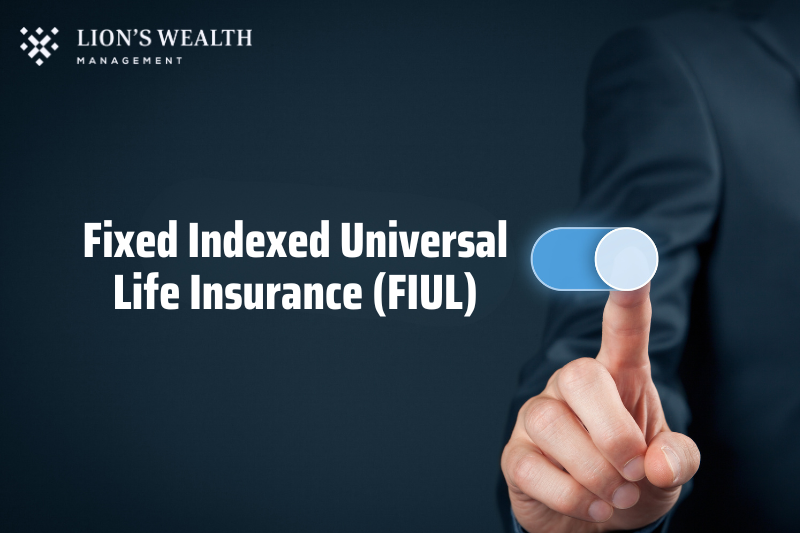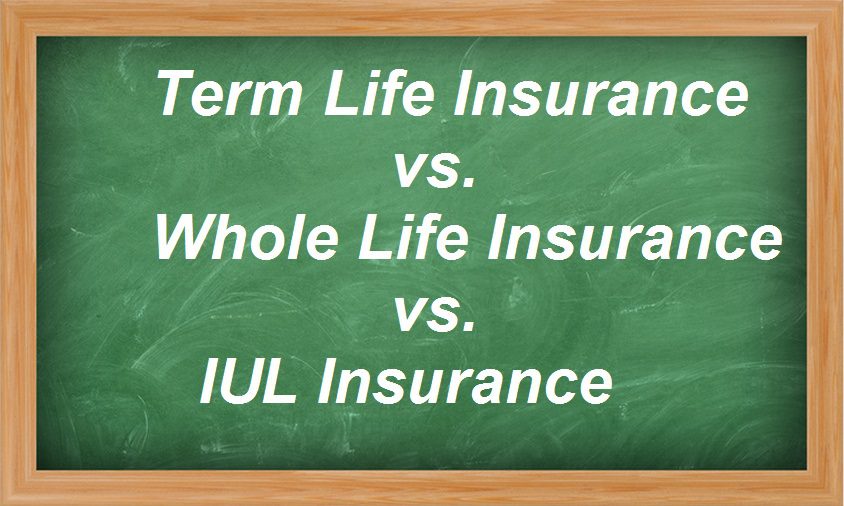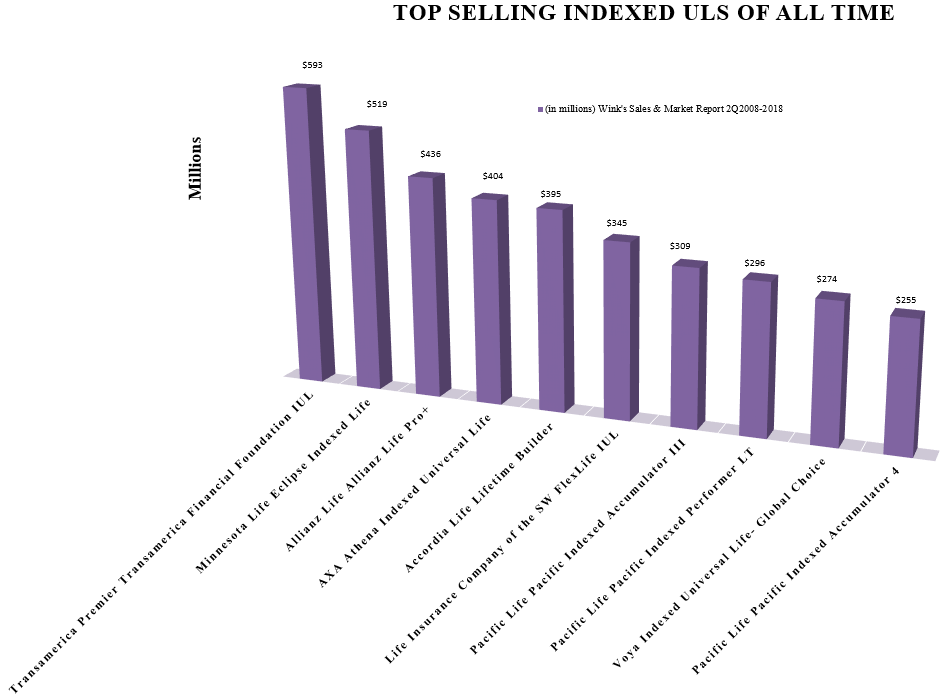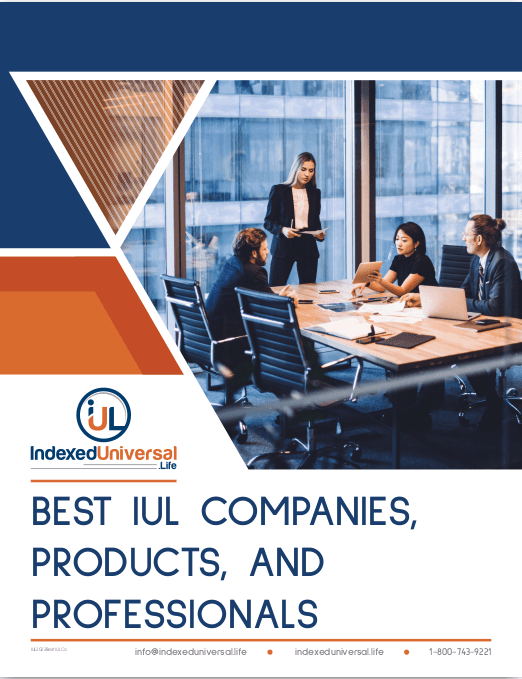All Categories
Featured
Table of Contents
1), frequently in an attempt to defeat their group averages. This is a straw man debate, and one IUL folks love to make. Do they contrast the IUL to something like the Lead Total Supply Market Fund Admiral Show no tons, a cost proportion (ER) of 5 basis factors, a turnover ratio of 4.3%, and an outstanding tax-efficient document of distributions? No, they compare it to some dreadful proactively taken care of fund with an 8% lots, a 2% EMERGENCY ROOM, an 80% turn over proportion, and a terrible record of temporary resources gain circulations.
Shared funds frequently make yearly taxable distributions to fund owners, even when the worth of their fund has actually dropped in value. Mutual funds not only require income reporting (and the resulting annual tax) when the common fund is increasing in value, but can also impose revenue taxes in a year when the fund has gone down in value.
That's not exactly how common funds function. You can tax-manage the fund, gathering losses and gains in order to minimize taxable circulations to the financiers, but that isn't somehow going to transform the reported return of the fund. Just Bernie Madoff types can do that. IULs avoid myriad tax obligation catches. The possession of mutual funds may need the shared fund proprietor to pay estimated taxes.

IULs are very easy to place to make sure that, at the owner's fatality, the beneficiary is not subject to either income or inheritance tax. The exact same tax reduction methods do not work virtually also with mutual funds. There are countless, frequently expensive, tax obligation traps associated with the timed trading of shared fund shares, catches that do not put on indexed life Insurance.
Opportunities aren't extremely high that you're going to undergo the AMT as a result of your mutual fund circulations if you aren't without them. The remainder of this one is half-truths at best. While it is true that there is no revenue tax due to your successors when they inherit the proceeds of your IUL plan, it is additionally true that there is no earnings tax due to your successors when they acquire a shared fund in a taxable account from you.
Best Iul Companies
The government inheritance tax exemption limit mores than $10 Million for a couple, and expanding annually with inflation. It's a non-issue for the substantial majority of medical professionals, a lot less the remainder of America. There are better methods to stay clear of inheritance tax problems than getting investments with reduced returns. Mutual funds might cause earnings taxation of Social Safety benefits.

The growth within the IUL is tax-deferred and may be taken as tax cost-free revenue using financings. The plan proprietor (vs. the mutual fund supervisor) is in control of his/her reportable income, hence allowing them to reduce and even remove the tax of their Social Safety and security advantages. This set is great.
Here's another very little problem. It holds true if you purchase a mutual fund for claim $10 per share right before the distribution date, and it disperses a $0.50 circulation, you are after that going to owe tax obligations (possibly 7-10 cents per share) regardless of the truth that you haven't yet had any gains.
In the end, it's truly regarding the after-tax return, not just how much you pay in tax obligations. You're also most likely going to have even more cash after paying those taxes. The record-keeping needs for owning mutual funds are substantially more intricate.
With an IUL, one's documents are maintained by the insurance firm, copies of yearly declarations are mailed to the owner, and distributions (if any kind of) are totaled and reported at year end. This is also kind of silly. Of course you should keep your tax documents in case of an audit.
Is Indexed Life Insurance A Good Investment
All you need to do is push the paper right into your tax obligation folder when it turns up in the mail. Barely a factor to purchase life insurance policy. It's like this individual has actually never ever invested in a taxable account or something. Common funds are frequently part of a decedent's probated estate.
On top of that, they undergo the delays and expenses of probate. The earnings of the IUL plan, on the other hand, is constantly a non-probate distribution that passes outside of probate straight to one's named beneficiaries, and is therefore exempt to one's posthumous financial institutions, unwanted public disclosure, or comparable delays and expenses.
We covered this under # 7, however just to evaluate, if you have a taxable shared fund account, you must place it in a revocable depend on (and even easier, utilize the Transfer on Death designation) in order to stay clear of probate. Medicaid incompetency and lifetime revenue. An IUL can supply their owners with a stream of earnings for their whole lifetime, no matter how much time they live.

This is valuable when arranging one's affairs, and converting possessions to revenue before a retirement home confinement. Shared funds can not be transformed in a comparable manner, and are generally considered countable Medicaid possessions. This is one more foolish one promoting that poor people (you know, the ones that need Medicaid, a government program for the bad, to spend for their assisted living home) need to use IUL rather of mutual funds.
Iul Benefits
And life insurance policy looks awful when compared rather versus a retirement account. Second, people that have cash to purchase IUL above and past their retired life accounts are mosting likely to need to be dreadful at managing cash in order to ever get approved for Medicaid to spend for their assisted living home expenses.
Persistent and incurable disease motorcyclist. All policies will certainly enable a proprietor's easy accessibility to money from their plan, commonly waiving any abandonment penalties when such individuals endure a significant health problem, need at-home care, or become confined to a nursing home. Mutual funds do not supply a similar waiver when contingent deferred sales charges still relate to a common fund account whose proprietor requires to sell some shares to money the expenses of such a keep.
How Does Group Universal Life Insurance Work
Yet you obtain to pay more for that advantage (motorcyclist) with an insurance plan. What a lot! Indexed universal life insurance coverage provides fatality benefits to the recipients of the IUL owners, and neither the proprietor neither the beneficiary can ever shed cash due to a down market. Mutual funds offer no such guarantees or death advantages of any type of kind.
I absolutely don't need one after I reach economic freedom. Do I want one? On average, a buyer of life insurance policy pays for the true price of the life insurance benefit, plus the expenses of the policy, plus the profits of the insurance coverage company.
Using Iul For Retirement
I'm not entirely sure why Mr. Morais tossed in the entire "you can not lose cash" once more right here as it was covered quite well in # 1. He just wanted to repeat the ideal marketing point for these points I intend. Again, you do not shed small dollars, yet you can shed real dollars, as well as face significant opportunity expense due to reduced returns.

An indexed universal life insurance policy owner may exchange their policy for a totally different policy without triggering earnings tax obligations. A shared fund owner can not move funds from one mutual fund firm to another without selling his shares at the former (hence causing a taxable occasion), and buying new shares at the last, usually subject to sales charges at both.
While it is real that you can trade one insurance coverage plan for one more, the reason that individuals do this is that the very first one is such a horrible plan that also after buying a brand-new one and going with the early, unfavorable return years, you'll still come out in advance. If they were sold the ideal plan the very first time, they should not have any type of desire to ever before trade it and undergo the very early, negative return years again.
Latest Posts
Best Variable Life Insurance
Term Life Vs Universal Life Insurance
Universal Life Insurance With Living Benefits